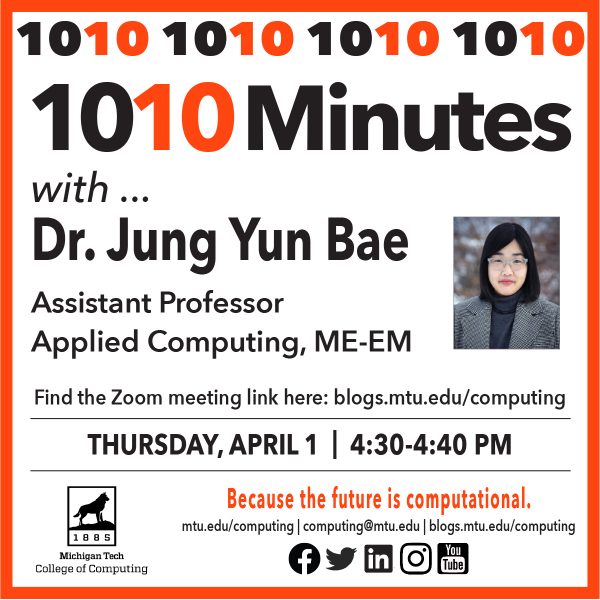
Call for Manuscripts:
Special Issue on Fault Tolerance in Cloud/Edge/Fog Computing in Future Internet, an international peer-reviewed open access monthly journal published by MDPI.
Informational Flyer
https://blogs.mtu.edu/icc/files/2021/04/ali-ebnenasir-call-for-papers-032521-sm.pdf
Deadline
April 20, 2021
Author Notification
June 10, 2021
Website
mdpi.com/journal/futureinternet/special_issues/FT_CEFC
Collection Editors
- Dr. Ali Ebnenasir, Michigan Technological University
- Dr. Sandeep S. Kulkarni, Michigan State University
Keywords
- Fault tolerance
- Cloud computing
- Edge computing
- Resource-constrained devices
- Distributed protocols
- State replication
Topics
Including, but not limited to:
- Faults and failures in cloud and edge computing.
- State replication on edge devices under the scarcity of resources.
- Fault tolerance mechanism on the edge and in the cloud.
- Models for the predication of service latency and costs in distributed fault-tolerant protocols on the edge and in the cloud.
- Fault-tolerant distributed protocols for resource management of edge devices.
- Fault-tolerant edge/cloud computing.
- Fault-tolerant computing on low-end devices.
- Load balancing (on the edge and in the cloud) in the presence of failures.
- Fault-tolerant data intensive applications on the edge and the cloud.
- Metrics and benchmarks for the evaluation of fault tolerance mechanisms in cloud/edge computing.
Background
The Internet of Things (IoT) has brought a new era of computing that permeates in almost every aspect of our lives. Low-end IoT devices (e.g., smart sensors) are almost everywhere, monitoring and controlling the private and public infrastructure (e.g., home appliances, urban transportation, water management system) of our modern life. Low-end IoT devices communicate enormous amount of data to the cloud computing centers through intermediate devices, a.k.a. edge devices, that benefit from stronger computational resources (e.g., memory, processing power).
To enhance the throughput and resiliency of such a three-tier architecture (i.e., low-end devices, edge devices and the cloud), it is desirable to perform some tasks (e.g., storing shared objects) on edge devices instead of delegating everything to the cloud. Moreover, any sort of failure in this three-tier architecture would undermine the quality of service and the reliability of services provided to the end users.
Scope
Theoretical and experimental methods that incorporate fault tolerance in cloud and edge computing, which have the potential to improve the overall robustness of services in three-tier architectures.
Manuscript Submission Information
Manuscripts should be submitted online at www.mdpi.com by registering and logging in to this website (https://www.mdpi.com/user/login/). Once you are registered, click here to go to the submission form (https://susy.mdpi.com/user/manuscripts/upload/?journal=futureinternet).
Manuscripts can be submitted until the deadline. All papers will be peer-reviewed. Accepted papers will be published continuously in the journal (as soon as accepted) and will be listed together on the special issue website. Research articles, review articles as well as short communications are invited. For planned papers, a title and short abstract (about 100 words) can be sent to the Editorial Office for announcement on this website.
Submitted manuscripts should not have been published previously, nor be under consideration for publication elsewhere (except conference proceedings papers). All manuscripts are thoroughly refereed through a single-blind peer-review process. A guide for authors and other relevant information for submission of manuscripts is available on the Instructions for Authors page.
Please visit the Instructions for Authors page before submitting a manuscript.
The Article Processing Charge (APC) for publication in this open access journal is 1400 CHF (Swiss Francs). Submitted papers should be well formatted and use good English.
Authors may use MDPI’s English editing service prior to publication or during author revisions.

